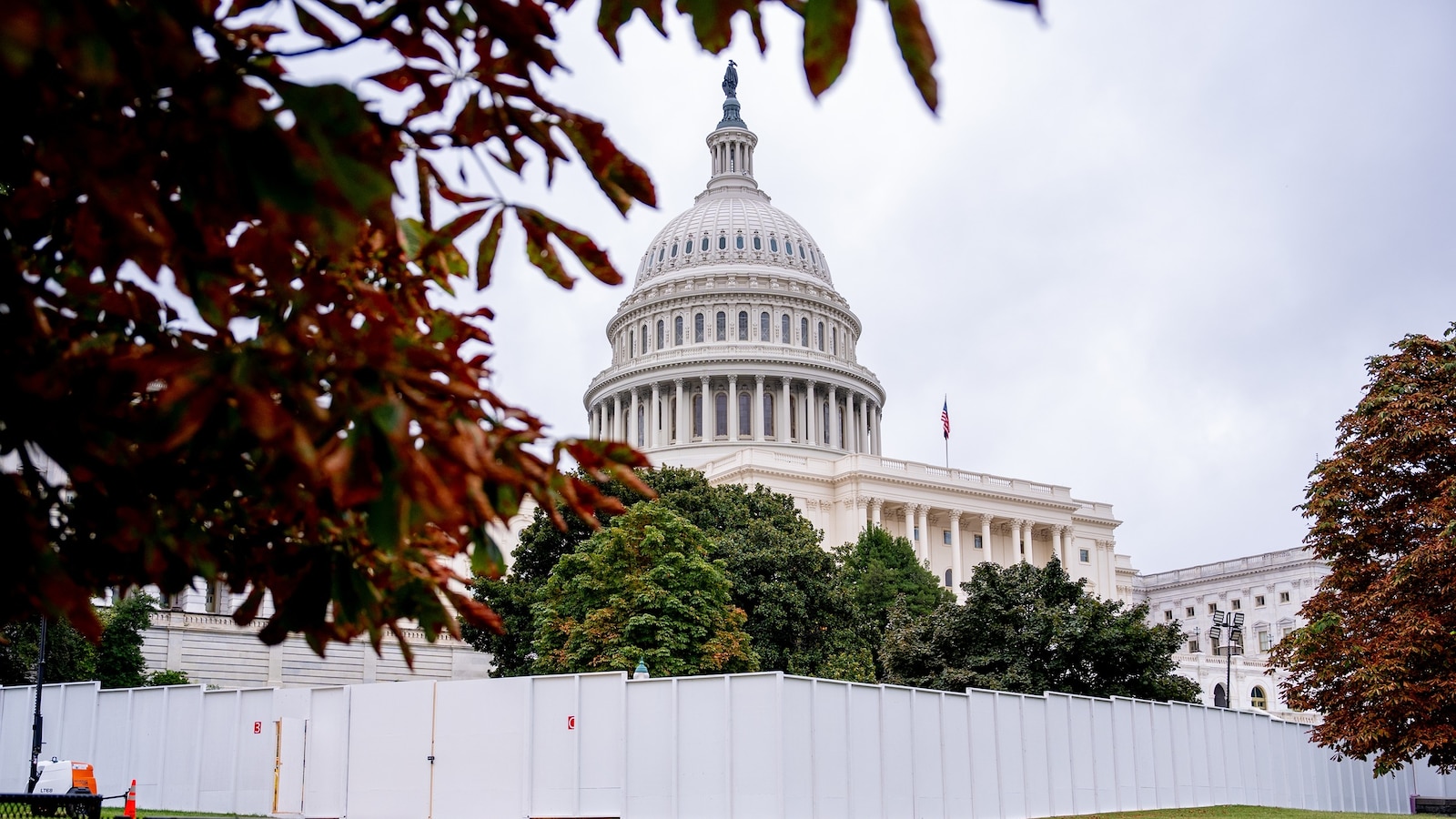Federal and local law enforcement and officials in Washington, D.C., are ramping up preparations to ensure a safe and peaceful transfer of power on Jan. 6, 2025, and on Inauguration Day.
In September, the Department of Homeland Security designated Jan. 6 a National Special Security Event (NSSE) and approved D.C. Mayor Muriel Bowser’s request for additional federal resources.
The District is anticipating that there will be no declared winner on election night and, “We could enter a period where we have pervasive misinformation and disinformation about the outcome of the election,” D.C. Assistant City Administrator Chris Rodrigez warned on Tuesday.
“For a period, perhaps days or weeks, where the country, and in many respects the world, will be sitting and waiting for the declared winner,” he added.

The Dome of the Capitol Building is visible as protective fencing is erected around construction for the 2025 inauguration platform on the West Front on Capitol Hill on Sept. 17, 2024 in Washington, D.C.
Andrew Harnik/Getty Images
Although there are no specific threats to the city, officials are planning ahead for any and all threats, including continued pervasive misinformation and disinformation about everything ranging from COVID to political polarization and violence. They noted that social media will be the “epicenter” of false information.
Preparation for Inauguration Day began in the aftermath of the deadly Jan. 6. insurrection. Five people died during or after the attack, including four protesters and one police officer. Approximately 140 police officers were injured during the attack, according to the Department of Justice.
Bowser told ABC News that one of the biggest lessons D.C. learned was to have “better coordination among the federal branches, and that is what the National Special Security Event status provides.”
D.C. Police Chief Pam Smith told reporters on Tuesday that close to 4,000 additional law enforcement officers will be deployed to D.C. between Jan. 6 and Inauguration Day.
In addition to law enforcement, the mayor is considering an advance request to the Department of Defense for National Guard support. Normally, a state’s governor would call out the Guard, but because D.C. is not a state, it must go through DOD. However, the Capitol Police can now call up the National Guard for support without needing the Capitol Police Board’s pre-approval.
“We have also implemented changes that will hopefully ensure that we will not need to call the National Guard unless it is a last-case scenario,” Capitol Police told ABC News.

Pro-Trump protesters storm into the U.S. Capitol during clashes with police, during a rally to contest the certification of the 2020 U.S. presidential election results by the Congress, in Washington, Jan. 6, 2021.
Shannon Stapleton/Reuters, FILE
Like D.C.’s Metropolitan Police Department, U.S. Capitol Police have focused on expansion in the four years since Jan. 6. Capitol Police told ABC News that it has strengthened partnerships and coordination with local and state officials.
Capitol Police had a wave of resignations and retirements after Jan. 6, but over the past four years has hired several hundred people and now has 2,100 officers on staff. The agency also added 140 civilians to serve in various roles such as intelligence specialists, operational planners, and emergency management specialists, as well as a new Rapid Response Team.
A source familiar with security planning told ABC News to expect a security footprint similar to that of the State of the Union or the recent NATO Summit in Washington in July.
However, officials are prepared for any and all threats, noting it is a “fluid, unpredictable security environment,” which includes extremist groups and the potential for civil unrest.
“If you see something, say something” noting that the pipe bombs found at the Republican National Committee and the Democratic National Committee headquarters were placed the night before the insurrection “most likely to distract law enforcement,” Rodrigez urged residents.

The US Capitol building is seen on Aug. 21, 2024 in Washington, DC, as construction of the Inaugural Platform begins in preparation for the 2025 Presidential Inauguration.
Anna Rose Layden/Getty Images
Bowser told the council to anticipate robust fencing around the Capitol from Jan. 6 until Jan. 21.
She also noted that if Vice President Kamala Harris wins the presidential election, the city’s challenges will differ from a win by former President Donald Trump.
The mayor said in the event of a Harris win, “The issue is probably a million people will be here who are celebrating and who are in good spirits, and that also presents its challenges to make sure everybody can do it safely.”
“I think that the United States Capitol Police are prepared to ensure a peaceful transfer of power at the Capitol, regardless of the victor,” she added, noting that her team has experience handling large-scale historic inaugurations, including former President Barack Obama’s election.
